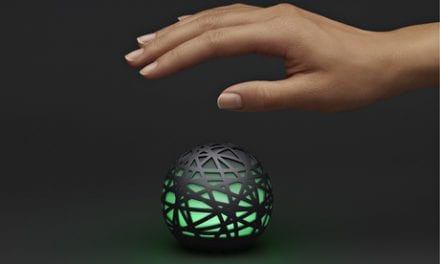AARP is launching a program to give developers of popular and emerging products insight into how Americans 50-plus use technology in order to identify ways to improve the devices for mature consumers. The initiative is called Project Catalyst and its first study is focused on popular sleep and activity trackers. In conjunction with UnitedHealthcare and Pfizer Inc, this is the first of several technology studies that AARP will conduct with the goal of accelerating innovation for aging Americans.
“Technology that is designed well—designed for all—can be used by a 5-year-old and a 95-year-old, alike. We are thrilled about starting this study and commencing the launch of the Project Catalyst program,” says Jody Holtzman, AARP senior vice president of Thought Leadership, in a release. “The goals of Project Catalyst are in direct alignment with the mission of AARP—to identify challenges and determine solutions to improve the quality of life for people as they age.”
Study Launches Project Catalyst
Project Catalyst engages consumers in the innovation process by providing valuable feedback on product functionality and design—from the time users open the packaging and as they incorporate the technology into their daily lives. Project Catalyst is the latest in a series of efforts led by AARP to raise awareness of the economic power of consumers who are 50-plus and conduct research about their wants and needs regarding innovative products. This influential demographic is comprised of over 100 million people responsible for at least $7.1 trillion in annual economic activity—a figure that is expected to reach well over $13.5 trillion in real terms by 2032, according to Oxford Economics.
Testing the Trackers
Georgia Tech Research Institute is conducting the first study, which involves up to 80 50-plus consumers who are testing five different sleep and activity tracking devices over a six-week period. Researchers will evaluate how the study participants use the products and will record barriers and user engagement with some of the most popular activity and sleep trackers on the market. Researchers will not rank the products, but will determine where the technology is serving the needs of older consumers and areas where the users want improvements.
Product developers will receive comprehensive results on their own specific product, providing them with actionable insights to help drive innovation. Overall findings about how people in the study use the devices and barriers they find will be shared publicly. The findings from the study on sleep and activity trackers will be available in June 2015.
Industry Support
Project Catalyst is an interdisciplinary initiative engaging leaders in healthcare, technology, and research as well as innovators and consumers. Under the leadership of AARP and in conjunction with UnitedHealthcare and Pfizer, this model will allow study outcomes and learnings to be shared publicly to help spur the development of potential breakthrough products and services for the 50-plus population.
“With the 50-plus population representing a large portion of the patients who depend on our medicines, we recognize the importance of finding innovative solutions to challenges such as medication management and adherence,” says Wendy Mayer, vice president, Worldwide Innovation at Pfizer. “Project Catalyst has potential to enable collaboration across multiple stakeholder groups with the common goal of delivering the best value, and we look forward to continuing our longtime partnership with AARP.”
Tom Paul, chief consumer officer at UnitedHealthcare, says, “The goals of Project Catalyst are aligned with UnitedHealthcare’s commitment to being older Americans’ partners in a healthier future. We’re grateful for the opportunity to help healthcare technology better meet the needs and wants of consumers 50 and older through this initiative.”



